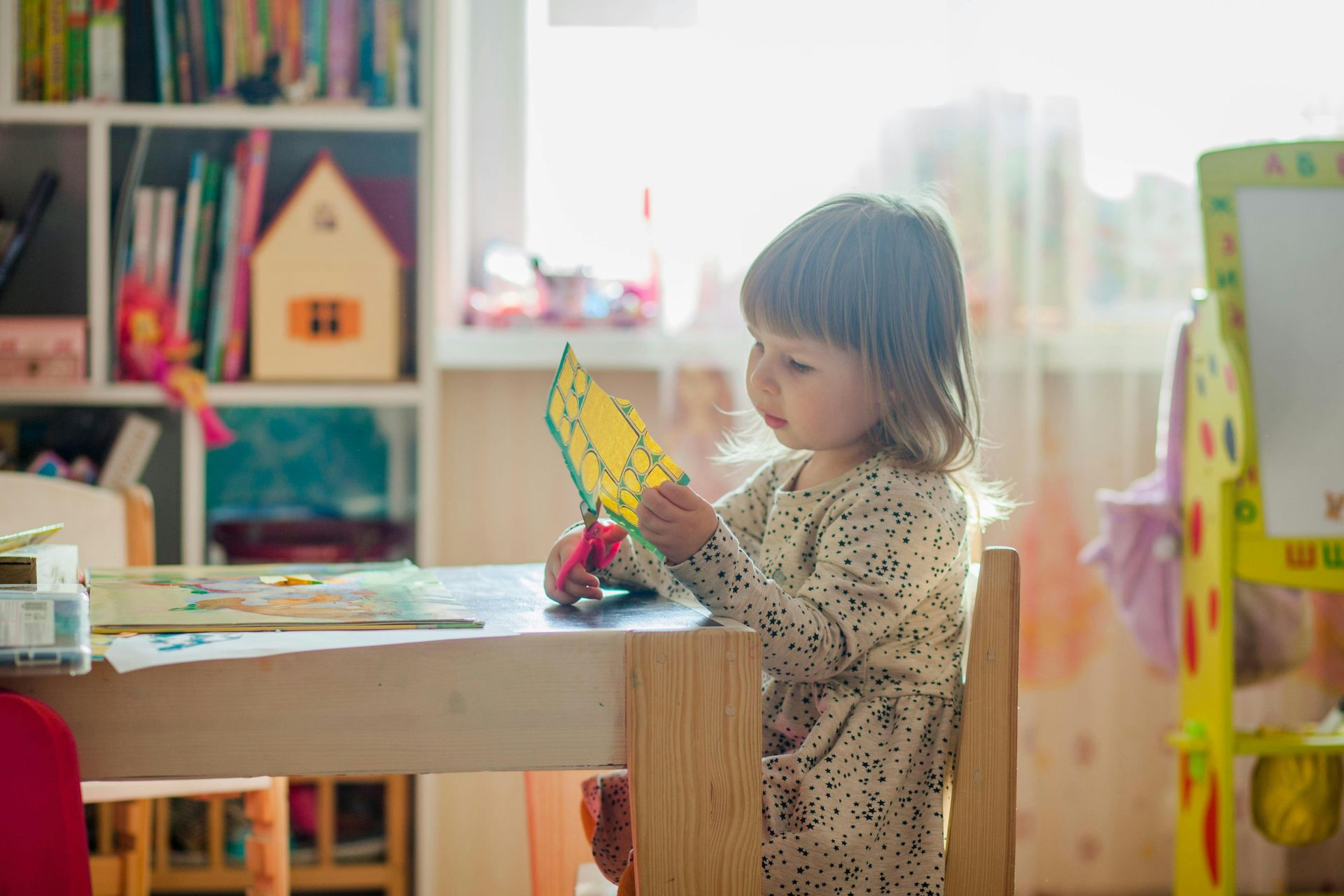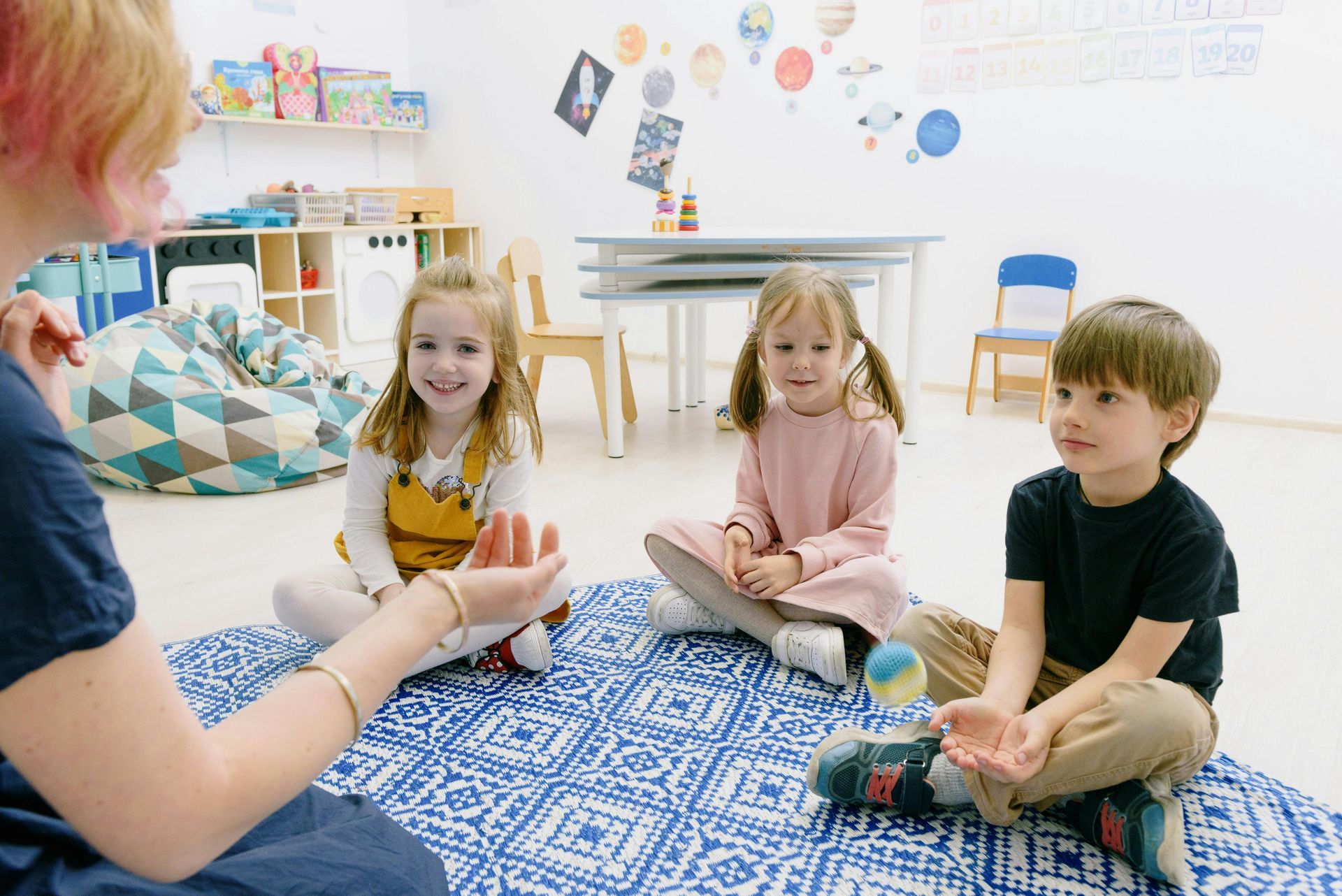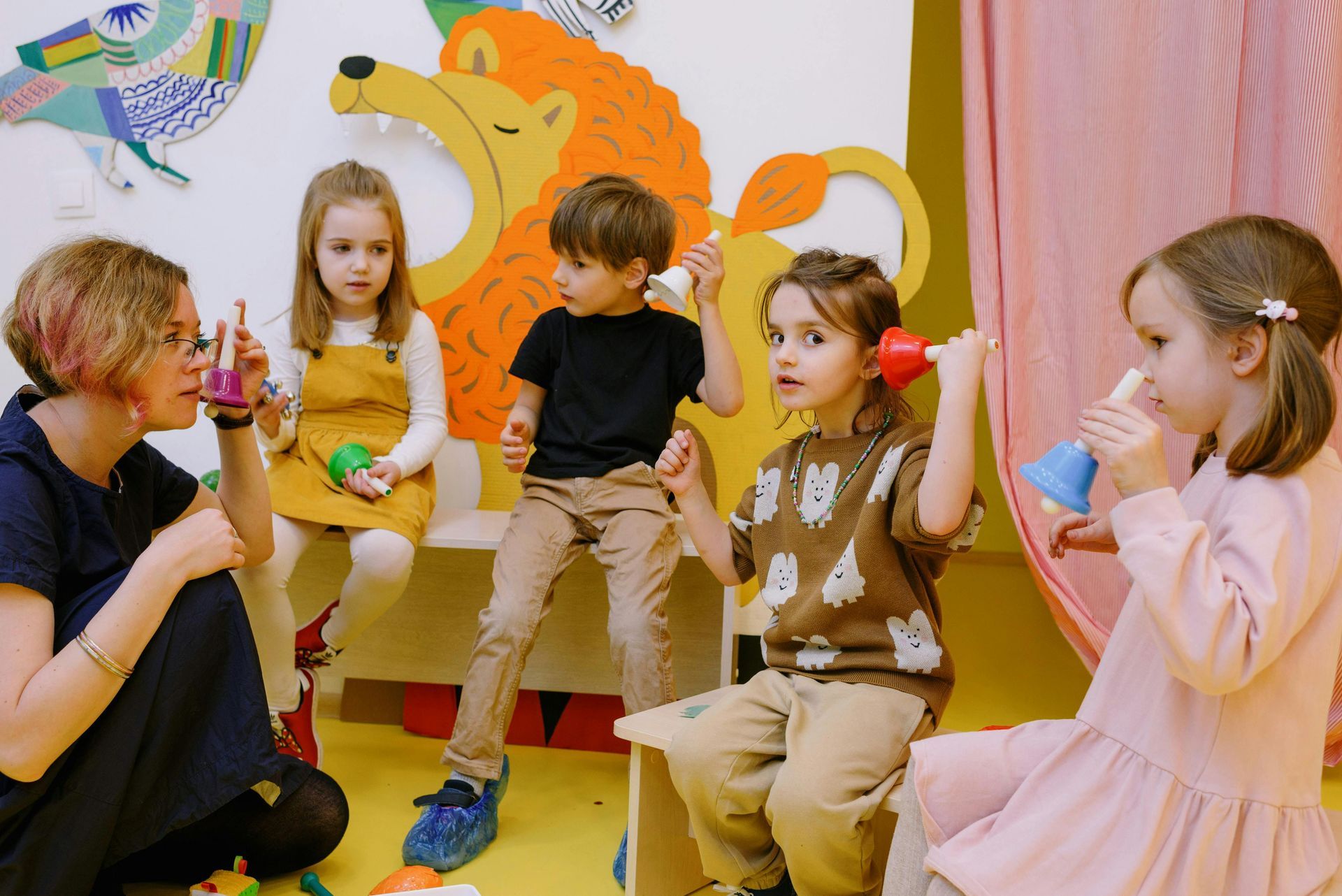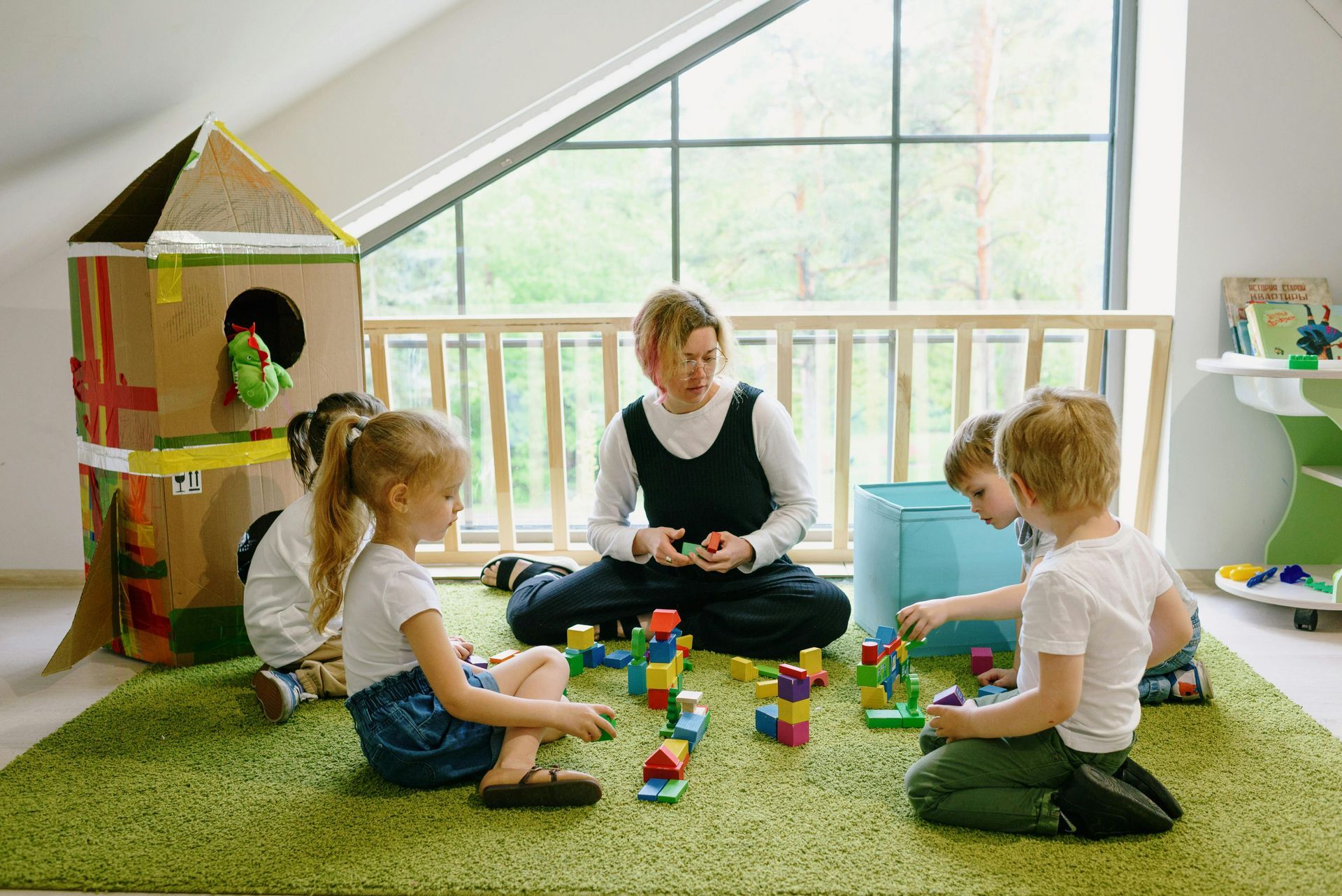The Power of Emotional Intelligence in Early Childhood: How Playtime Builds Emotional Awareness
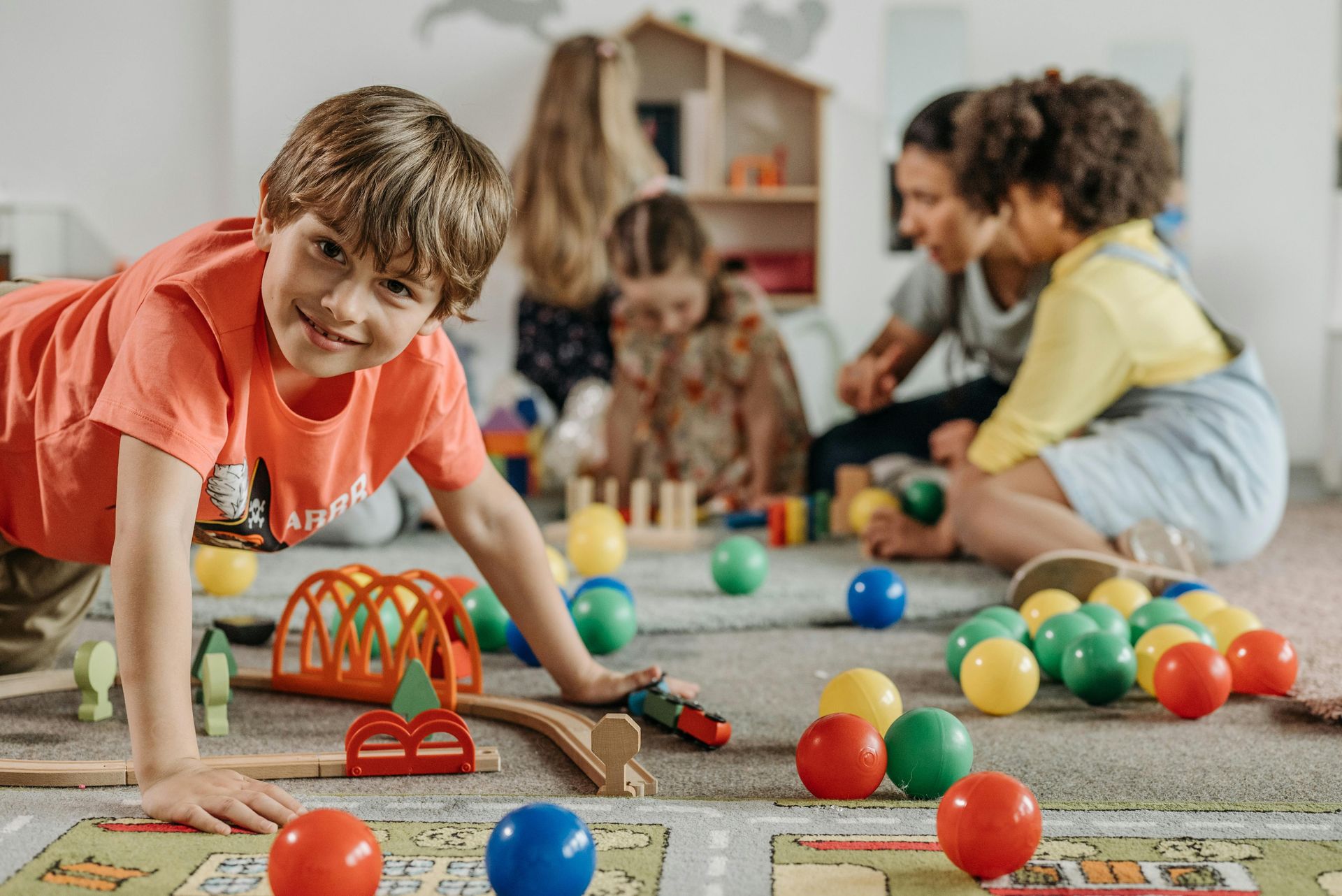
Emotional intelligence (EQ) is often considered just as important as cognitive intelligence (IQ) in determining success and well-being throughout life. For young children, developing emotional intelligence is critical, as it lays the foundation for managing feelings, building relationships, and navigating social situations. At Playtime Academy, we believe that emotional intelligence is nurtured through play and daily interactions. In this post, we’ll explore how early childhood education can foster emotional awareness and intelligence, and how playtime is a key component in this process.
What is Emotional Intelligence (EQ)?
Emotional intelligence refers to the ability to recognize, understand, and manage our own emotions, as well as the ability to recognize, understand, and influence the emotions of others. For young children, emotional intelligence is not just about learning to “behave” properly; it’s about developing self-awareness, empathy, and emotional regulation skills.
Research has shown that emotional intelligence is linked to a wide range of positive outcomes, including academic achievement, healthier relationships, and improved mental health. The early years of a child’s life are crucial for building these skills, and playtime can be a powerful tool in promoting emotional intelligence.
How Playtime Promotes Emotional Intelligence
Children’s play is not just about having fun; it’s a critical opportunity for them to learn and practice emotional skills in a safe and supportive environment. Here’s how playtime helps children develop emotional intelligence:
1. Emotional Awareness through Role Play
Role-playing is one of the most effective ways children learn to understand and manage emotions. By engaging in pretend play, children can experiment with different emotions and scenarios, practicing how to express feelings in healthy ways. For example, when children pretend to be doctors, teachers, or parents, they often act out real-life situations, learning to manage emotions such as frustration, excitement, or concern. This helps them develop empathy as they step into the shoes of others and learn to understand different perspectives.
2. Recognizing and Naming Emotions
Before children can regulate their emotions, they need to be able to identify and name them. Playtime offers countless opportunities for children to observe and recognize emotions in themselves and others. Whether they are playing a cooperative game, sharing toys, or working through a conflict with peers, children are continually faced with opportunities to recognize emotions such as happiness, sadness, anger, and frustration. Teachers at
Playtime Academy guide children through these situations, helping them label and understand the emotions they’re feeling.
3. Social Play and Building Empathy
Social interactions with peers play an essential role in the development of empathy, which is a core component of emotional intelligence. During playtime, children learn how to share, cooperate, and communicate with others. They practice perspective-taking, learning how their actions affect those around them. For example, when a child shares a toy or helps a friend who is upset, they experience positive reinforcement for showing kindness and compassion. These experiences help children build strong social-emotional skills that will serve them throughout their lives.
4. Conflict Resolution and Emotional Regulation
One of the most powerful aspects of play is its ability to help children navigate conflicts and learn how to regulate their emotions. During playtime, disagreements or frustrations often arise—whether it’s over a game, a toy, or a turn-taking issue. These moments present an opportunity for children to practice conflict resolution and emotional regulation skills. At
Playtime Academy, teachers guide children through these challenges, offering support and helping them express their feelings in appropriate ways. Over time, children learn how to manage their emotions in a positive way and find solutions to conflicts independently.
5. Emotional Expression through Art and Music
Art and music are powerful tools for emotional expression. When children engage in creative activities like drawing, painting, or playing instruments, they are able to express their feelings in ways that words may not always capture. Art and music allow children to process and communicate complex emotions, from joy to sadness to frustration. These activities also help children learn to focus, regulate their emotions, and stay calm, all of which are key components of emotional intelligence.
6. Encouraging Self-Confidence and Resilience
Children with high emotional intelligence tend to have stronger self-esteem and greater resilience. Through play, children gain confidence as they try new things, take risks, and accomplish tasks. Whether it’s learning how to balance on a beam, complete a puzzle, or act out a story, play allows children to build a sense of mastery and self-worth. They also learn to persevere through challenges, developing resilience in the face of setbacks.
7. Developing Positive Relationships with Adults
The role of adults in fostering emotional intelligence cannot be overstated. At Playtime Academy, our teachers and caregivers provide the guidance and emotional support that children need to build emotional intelligence. Through positive interactions, nurturing care, and empathetic listening, teachers model the behaviors that children need to develop their own emotional awareness. Children learn to trust the adults around them, and in turn, they begin to mirror these positive behaviors in their relationships with peers.
Strategies for Encouraging Emotional Intelligence at Home
While playtime at
Playtime Academy provides ample opportunities for emotional growth, it’s also essential to continue supporting emotional intelligence at home. Here are a few strategies parents can use to help build emotional intelligence in their children:
1. Use “Feelings” Words
Encourage children to name and express their emotions by using simple “feelings” words. For example, you can say, “It seems like you’re feeling frustrated right now. Can you tell me why?” This helps children develop emotional literacy and practice identifying their feelings.
2. Model Emotional Regulation
Children learn best by example. Show your child how to regulate emotions by practicing calmness and self-control. If you’re feeling upset, demonstrate how to manage those emotions in a healthy way by taking deep breaths or counting to ten before reacting.
3. Create Opportunities for Social Play
Arrange playdates or group activities that allow children to interact with others. These interactions are a great way for children to develop social skills, practice sharing, and navigate emotions like jealousy or disappointment.
4. Praise Efforts, Not Just Outcomes
When children successfully navigate an emotional challenge, praise their efforts and strategies rather than focusing solely on the outcome. For example, “I’m proud of you for taking a deep breath when you were frustrated,” reinforces the value of emotional regulation.
Learn how early childhood education lays the foundation for lifelong learning and how fostering emotional intelligence through play can shape children's future success by exploring our blog posts on
creating a foundation for lifelong learning and
fostering emotional intelligence in children through play.
Conclusion
Emotional intelligence is an essential skill that lays the foundation for healthy relationships, effective communication, and personal well-being. Through everyday play activities, children can develop the emotional awareness, empathy, and self-regulation skills that are crucial for success in both school and life. At
Playtime Academy, we are dedicated to providing an environment where children can grow emotionally and socially, building a strong foundation for emotional intelligence that will benefit them for years to come.

